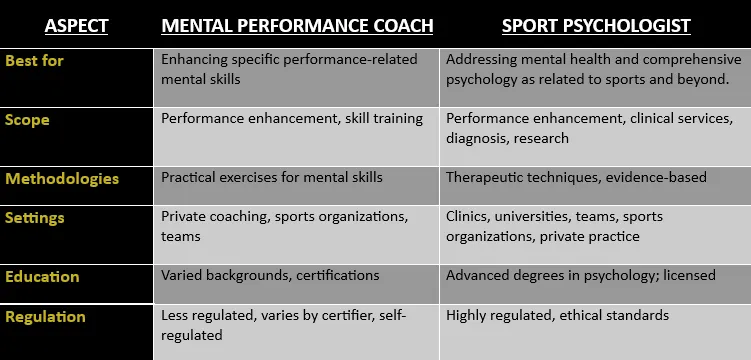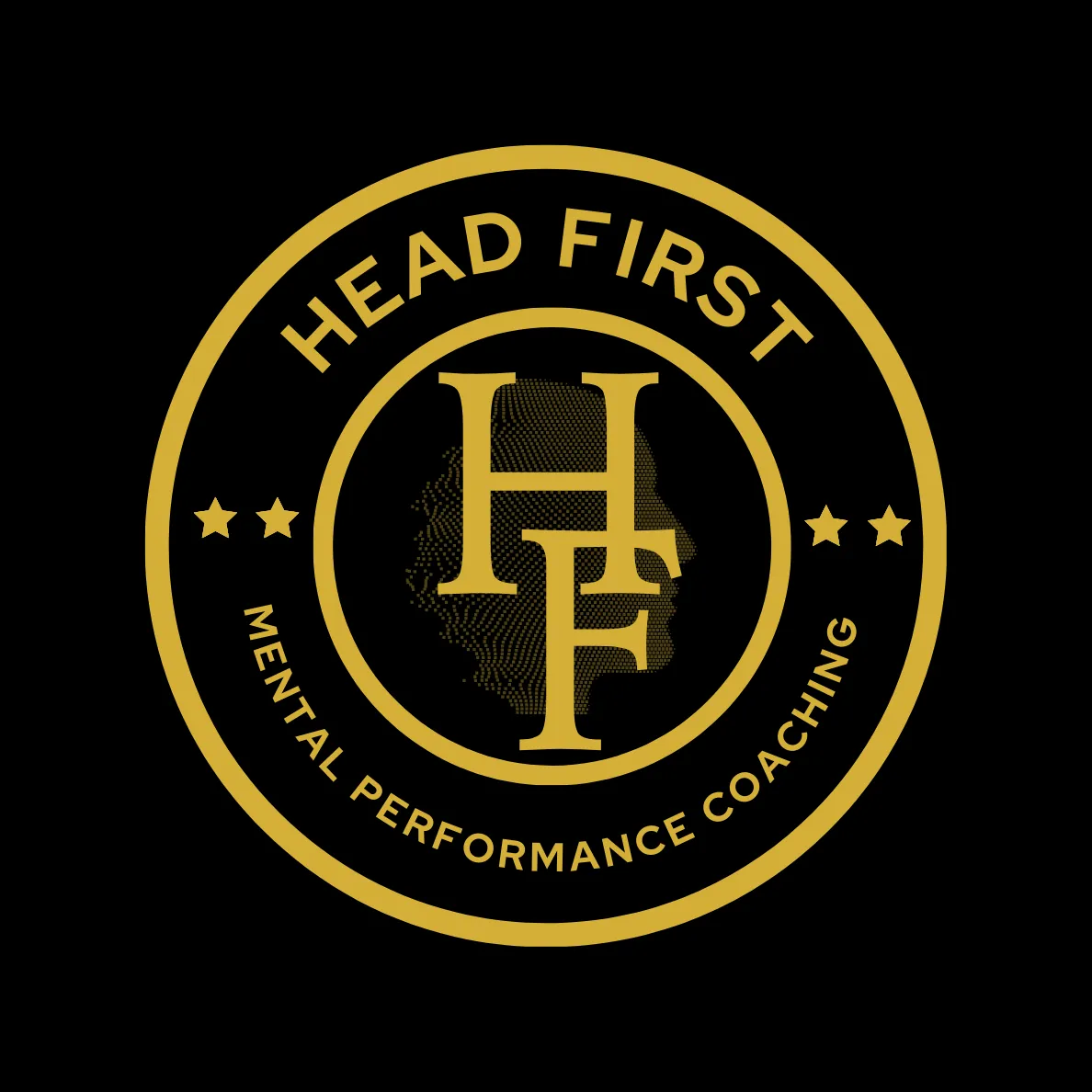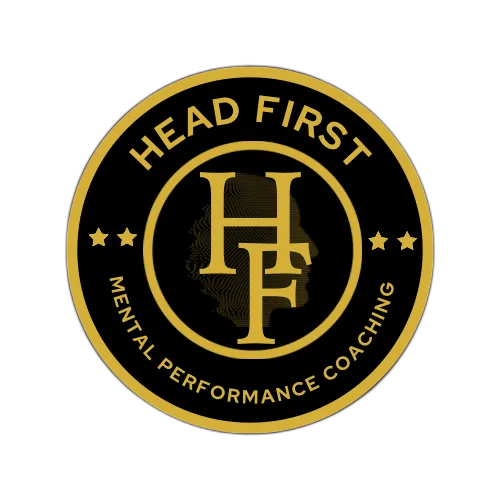The Difference Between a Mental Performance Coach and a Sports Psychologist.
If you are on the fence about hiring a Sports Psychologist or a Mental Performance Coach, this guide may help.
In many cases, athletes benefit from the dual roles of mental performance coaches and sports psychologists. While the sports psychologist addresses deeper psychological issues and provides clinical support, the mental performance coach focuses on daily mental skill development to improve performance. Together, they provide a comprehensive approach to an athlete's mental and emotional well-being and performance.
Understanding these differences can help athletes, coaches, and organizations make informed decisions about the mental support structures that best fit their needs.

Both mental performance coaches and sport psychologists work to improve athletic performance and well-being, but their training, scope of practice, methodologies, and regulatory frameworks differ. Here's a thorough comparison to help clarify their respective functions:
Scope of Practice
Sports Psychologist:
Clinical Services: Capable of diagnosing and treating mental health issues such as anxiety, depression, and other psychological disorders that may affect athletes.
Research & Assessment: Conduct psychological assessments, engage in research to advance the field, and apply evidence-based interventions.
Broader Applications: Work with a variety of clients beyond athletes, including coaches, teams, and even individuals in other high-performance fields.
Mental Performance Coach:
Performance Enhancement: Focus primarily on improving performance through mental skills training, such as goal setting, visualization, concentration, and motivation.
Practical Strategies: Implement techniques to help athletes develop resilience, manage stress, and maintain focus during competition.
Collaboration: Often work alongside coaches, trainers, and other support staff to integrate mental skills into overall training programs.
Methodologies & Approaches
Sports Psychologist:
Therapeutic Techniques: Utilize a variety of psychological therapies and interventions, including cognitive-behavioral therapy (CBT), to address mental health and performance issues.
Evidence-Based Practices: Ground their work in scientific research and empirical evidence, ensuring interventions are validated and effective.
Holistic Approach: Consider the athlete’s mental, emotional, and sometimes social factors affecting performance and well-being.
Mental Performance Coach:
Skill Development: Emphasize the development of specific mental skills through practical exercises, workshops, and regular training sessions.
Performance Focused: Aim to enhance specific aspects of performance, such as confidence, focus, and stress management, without delving deeply into underlying psychological issues.
Collaborative Techniques: Use techniques like visualization, positive self-talk, and routine development to build mental resilience and performance consistency.
Practical Applications and Settings
Sports Psychologist:
Settings: Work in diverse environments, including universities, professional sports teams, private practice, research institutions, and healthcare facilities.
Roles: May engage in consulting, clinical practice, teaching, and conducting research.
Mental Performance Coach:
Setting: Commonly found within sports organizations, teams, athletic departments, and sometimes in private coaching practices.
Roles: Primarily focus on one-on-one coaching, team workshops, and integrating mental training into daily athletic routines.
Education and Training
Sports Psychologist:
Academic Background: Typically hold advanced degrees (Master’s or Doctorate) in psychology with a specialization in sports psychology.
Licensing & Certification: Often required to be licensed psychologists, adhering to stringent professional and ethical standards. May hold certifications from recognized bodies like the American Psychological Association (APA) or the Association for Applied Sport Psychology (AASP).
Training: Receive extensive training in psychological theories, research methods, assessment tools, and therapeutic techniques.
Mental Performance Coach:
Academic Background: May have diverse educational backgrounds, including degrees in sports science, coaching, or psychology. Advanced degrees are less common but not unheard of.
Licensing & Certification: Certifications from organizations like the Association for Applied Mental Skills Training (AAMST), Brian Cain's Mental Performance Mastery Certification (MPM), or other reputable coaching bodies are typical but not as regulated as psychology licenses.
Training:
Focus on practical techniques and strategies to enhance mental skills without the depth of clinical training found in psychology programs.
Regulatory and Ethical Considerations
Sports Psychologist:
Regulation: Subject to strict licensing requirements and professional ethical standards. Must adhere to confidentiality and other ethical guidelines similar to other healthcare professionals.
Accountability: Held accountable by professional boards and associations, ensuring a high level of professionalism and responsibility.
Mental Performance Coach:
Regulation: Less regulated compared to psychologists. While ethical standards are encouraged, they may vary depending on the certifying body.
Autonomy: Often have more flexibility in their practice but also bear the responsibility to uphold ethical practices voluntarily.




